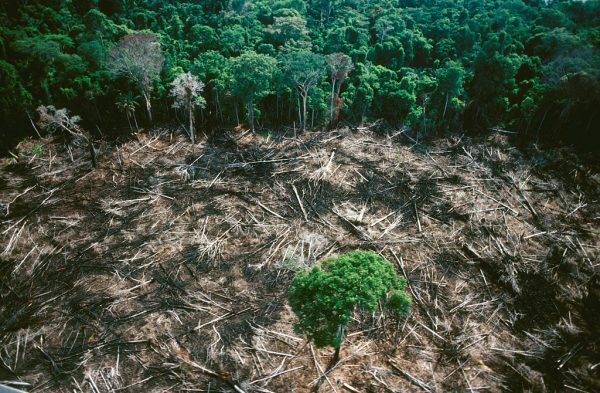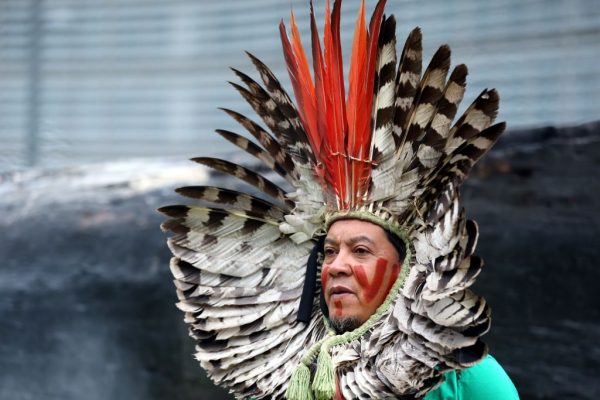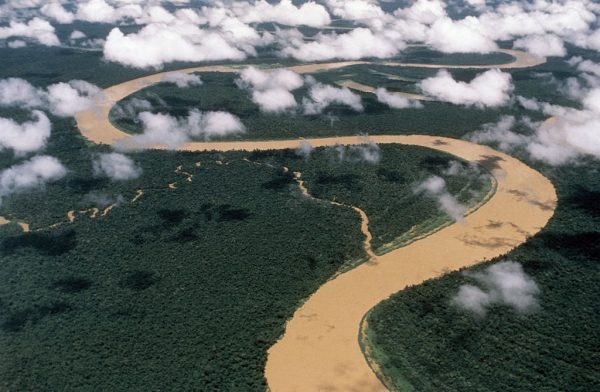Saving Millions Of Acres Of Rainforest, Amazon Tribe Wins Lawsuit Against Big Oil
There are still many indigenous people living in the rainforest who have no desire to blend into modern society.
Over one million natives are divided into about four hundred tribes with separate languages, customs, and land. Some have no contact whatsoever with the outside world while some avail themselves of chosen elements of modern society but still retain their way of living.
The Amazon rainforest is the largest in the world and includes nine countries with natural resources everyone wants. Logging, oil companies, mining, and the spread of agriculture and ranching are slowly pushing the native tribes farther into the rainforest.
The Waorani people are one day away from saving half-a-million acres of forest from oil drilling. Watch the video and send a message to Ecuador’s government: protect indigenous rights & the Amazon. https://t.co/EMnWv8Bqng @AFrontlines #WeLoveTheEarth #WaoraniResistance pic.twitter.com/qlv5uY6Pg0
— Leonardo DiCaprio (@LeoDiCaprio) April 25, 2019
Disclose.tv reports that in 2019, the Ecuadorian Amazon tribe of Waorani men and women won a landmark court case that recognized their rights to own and manage their ancestral home after the lands were put up for auction to oil companies by the Ecuadorian government.

The Waorani were first introduced to modern ways of life by missionaries in 1958. They were moved from small individual groups into larger groups in order to spread Christianity, according to Amazon Frontlines.
The increase of activity for oil drilling and the roads needed to move equipment have encroached on the Waorani lands even though much of it is located in Yasuní National Park and the Waorani Ethnic Reserve.
Although the Ecuadorian constitution established the indivisible rights of indigenous people to maintain possession and control of their ancestral lands, the government has approved the drilling on park lands, creating potential problems for the Waorani’s water supply.
The Ecuadorian Ombudsman, a legislative commissioner who investigates bureaucratic mishandling, along with Nenquimo, president of the Waorani Council of Pastaza and the Coordinating Council of the Waorani Nationality of Ecuador-Pastaza, filed a lawsuit to protect almost five hundred thousand acres, a very small percentage of Ecuador’s area of rainforest, from deforestation.

While the Waorani aren’t calling for violence, but they have made it very clear that they will defend their lands by any means possible. Quoted in Phys.org, Nenquimo states, “Let it be clear.
We will defend our jungle, our culture and our rights with our lives… thanks to my father, thanks to my grandfather, I still have forest that is alive with no contamination. They were defenders, caretakers, guardians of the jungle and they are doing this with me—I don’t feel alone.”
In 2012, Ecuador and the Waorani people conducted a consultation over oil exploration but the Waorani tribe complained that the government used deceitful means in favor of the oil companies. The tribe elders have refused to recognize the results.
The case was heard in April of 2019, and the verdict by three judges of the Pastaza Provincial Court permanently overturned the 2012 consultation process and halted any auctions of land. The oil companies had identified seven million acres of rainforest they wanted, and this verdict may well jeopardize their plans and set a precedent for future dealings with the government and oil barons.
IC reports that the Court not only threw out the 2012 review, but ordered new training for informed consultation for the officials of the Ministry of Energy and Non-renewable Resources and the Ministry of the Environment. All of the officials who participated in the 2012 consultation will be investigated.

The Waorani and supporters assisted their cause with a digital campaign, Waorani Resistance, and garnered global support with the slogan, “Waorani territory is not for sale” which has become a worldwide crusade of unity with more than three hundred and forty thousand signatures brought to the court supporting them.
Celebrities such as Leonardo Dicaprio and Mark Ruffalo provided support and financial backing through eBay, Facebook, the Human Rights Campaign, and other organizations.
Another article From Us: Thawing Permafrost Could See Anthrax & Prehistoric Diseases Return
During the hearings, many members of the Waorani tribe found their way to court in traditional dress and jewelry with painted faces and carrying spears as symbols of respect to their ancestors. After the verdict they marched through the streets of Puyo singing and celebrating the milestone victory.
Quoted on Business & Human Rights Resource Centre, Nemonte Nenquimo summed up the importance of this decision:
“The government tried to sell our lands to the oil companies without our permission. Our rainforest is our life.We decide what happens in our lands. We will never sell our rainforest to the oil companies. Today, the courts recognized that the Waorani people, and all indigenous peoples have rights over our territories that must be respected. The government’s interests in oil is not more valuable than our rights, our forests, our lives.”





